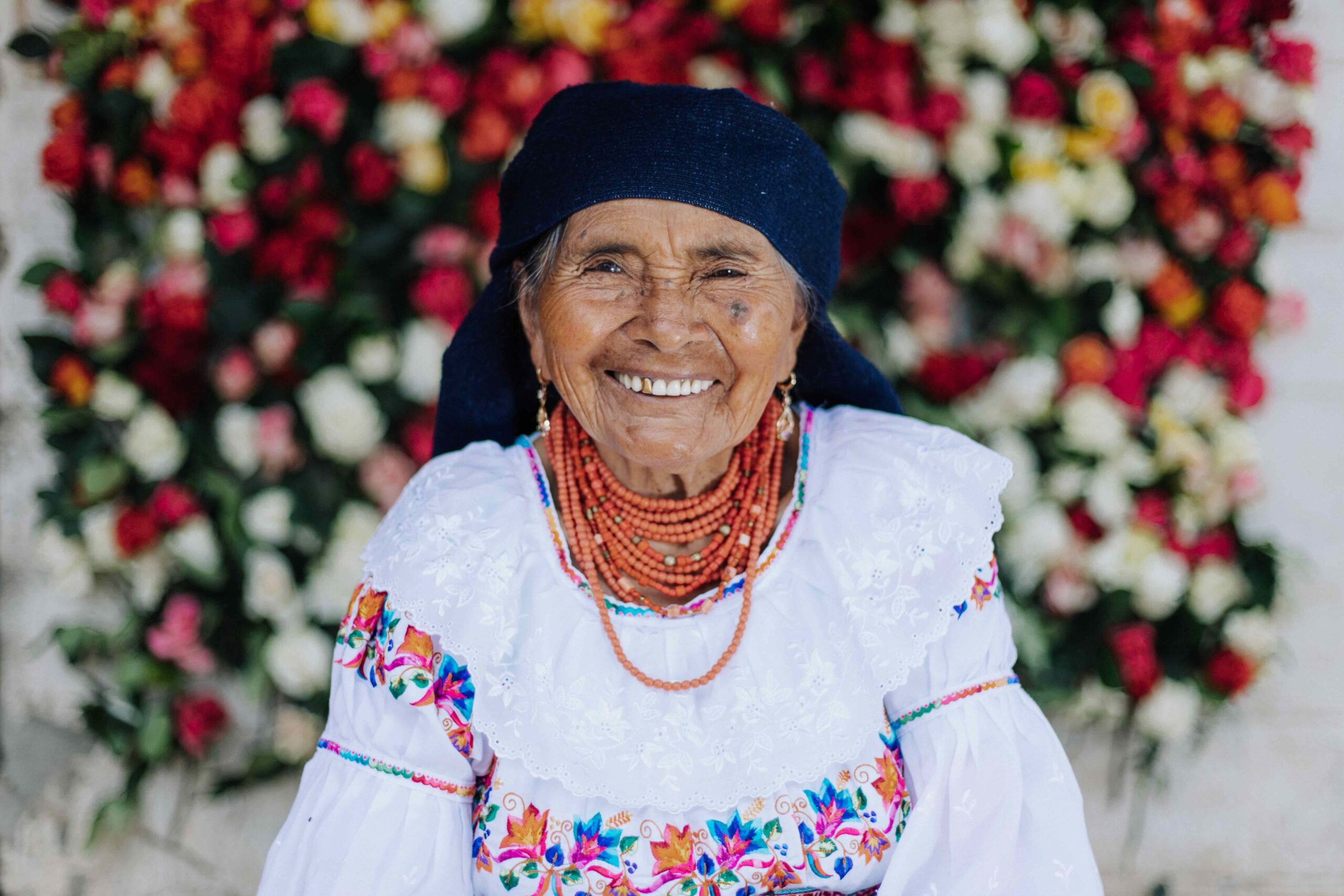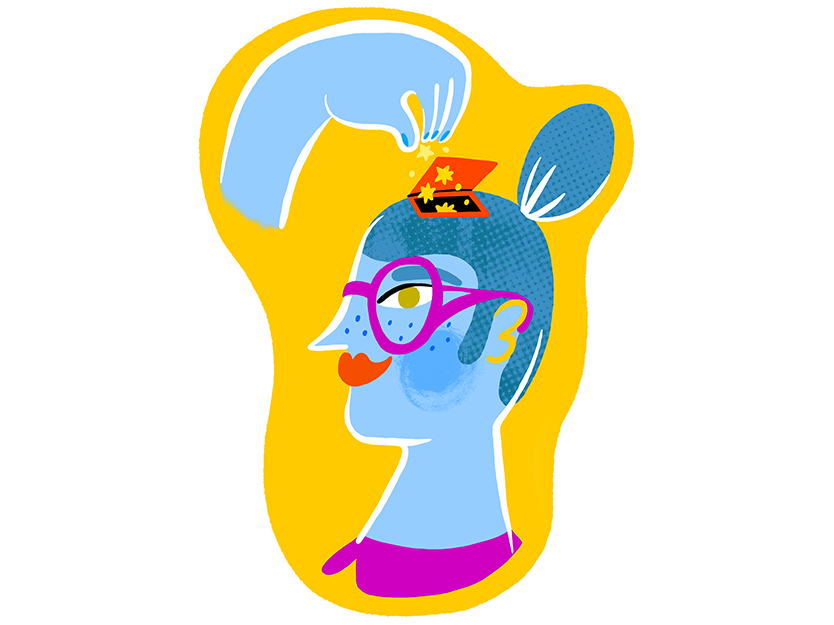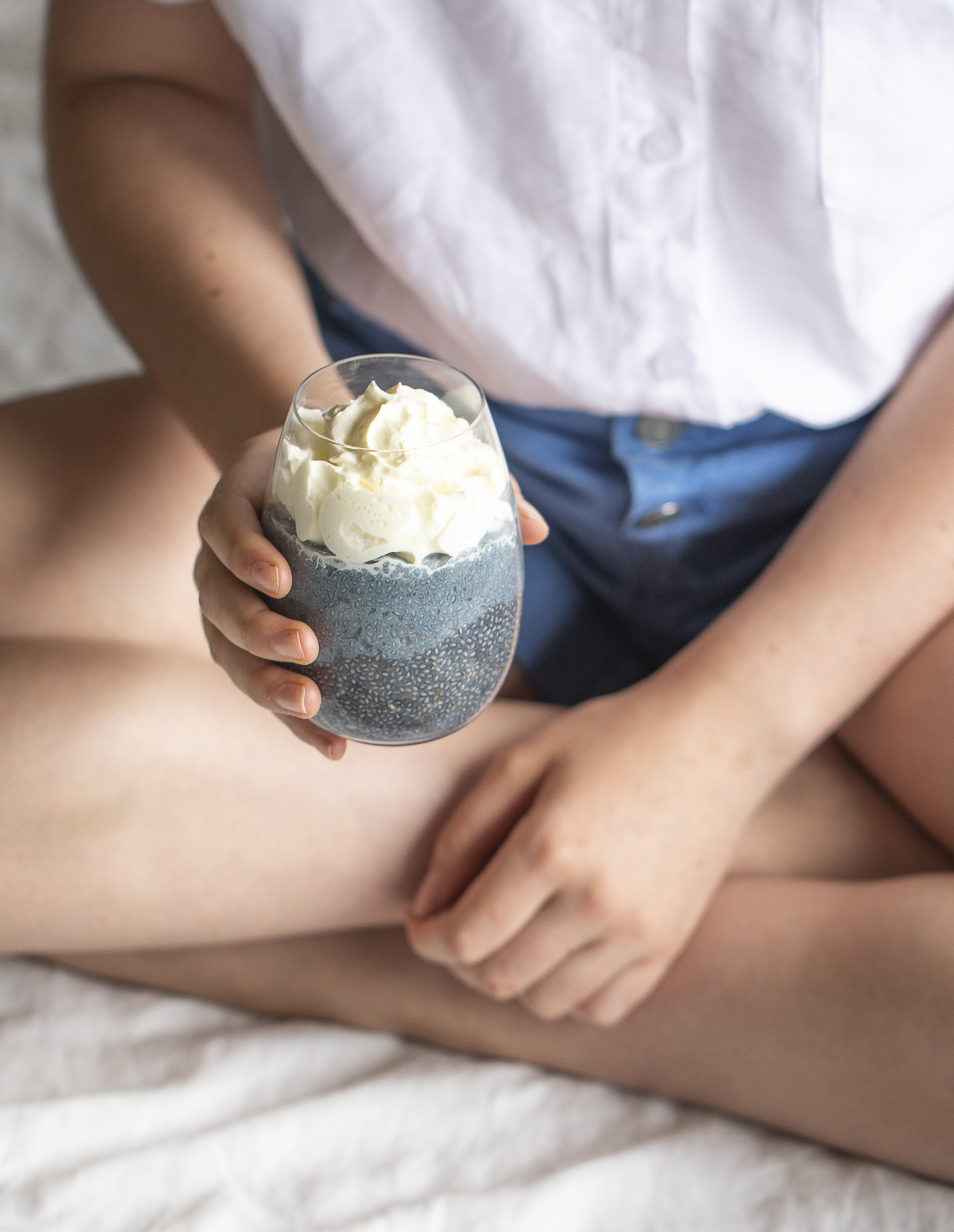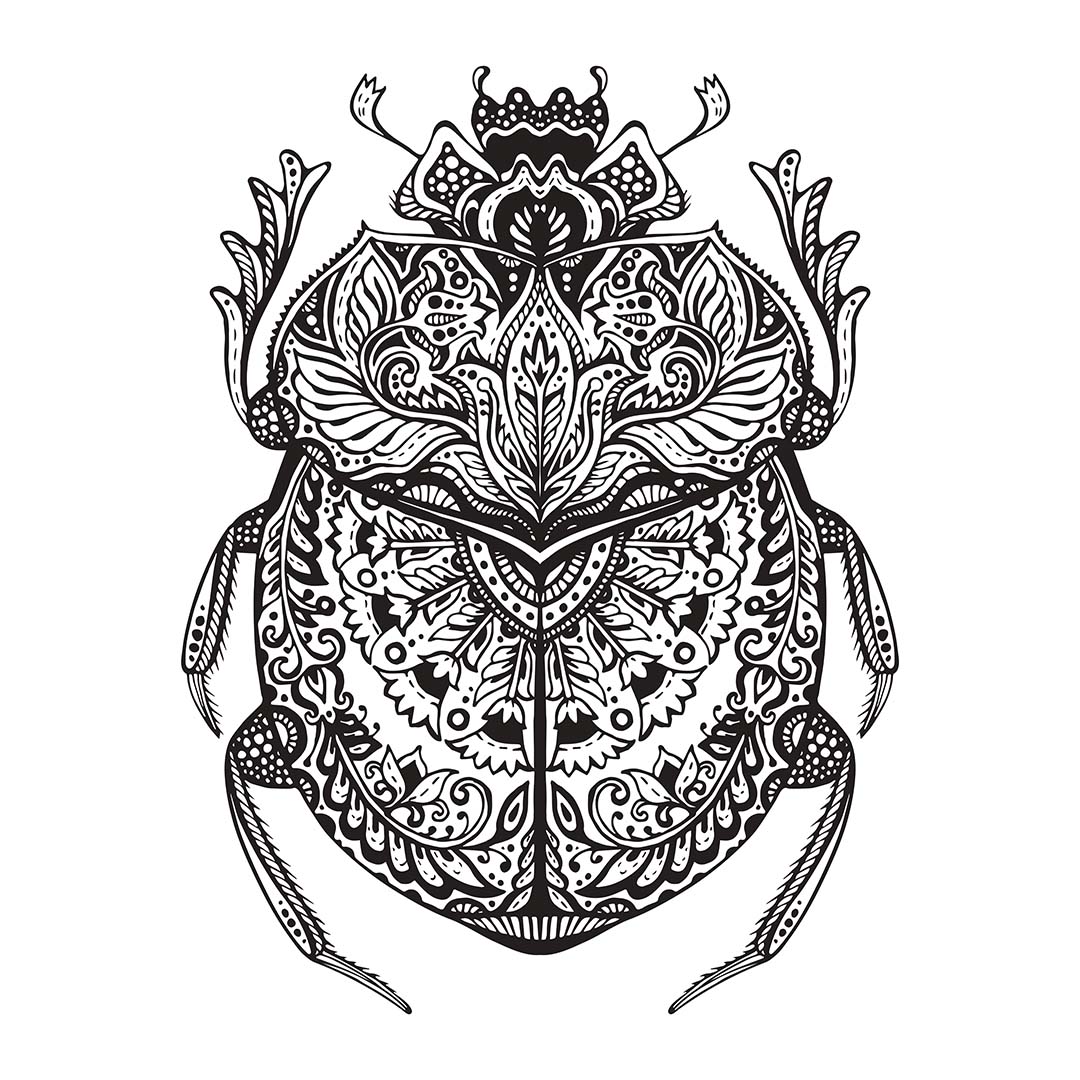Pictured: Beatrice from Burkina Faso
As quarantine measures shut schools and daycare facilities, women often shoulder the burden of balancing work with childcare and homeschooling. Social distancing deprives them of the support they could normally lean upon.
But women are far from defeated. This International Women’s Day, we wanted to honour this strength.
Good teamed up with Tearfund and Compassion International to invite 12 women, aged 18 to 91, all connected by the beauty of sponsorship, to sit for a portrait and a conversation.
In the midst of challenge, their strength is undeniable. Their resilience is inspiring.
Who are these women? Take a look. They are all around us.
Ecuador – Angelita, 91, Grandmother

“Everything happened very fast. My children told me that I could not leave the house, that I should not approach anyone, and that I should wear a facemask all the time. At that time I was very afraid. Something like this had never happened to me. One day, I couldn’t take it anymore. I left my house and walked up the mountain. Everything was closed. Empty streets. It was as if all the people had disappeared. I’m afraid of not knowing what will happen to my children and grandchildren. I don’t have many years left to live, but my grandchildren’s lives are just beginning. I want a world of peace, without discrimination, without evil. A world where men and women are treated the same and where there is no more violence against women, we are like roses. Beautiful, unique, and special. Our thorns are life lessons and challenges that we overcome every day. Our destiny is to fight and grow with the sunlight, no matter how intense the wind or rain is.”
New Zealand – Bex, 40, Mother, Archaeologist and Teacher

“Our Kiwi family was teaching and living in Sudan last year when we decided to head into the desert for a week-long holiday to view the pyramids. When we came back, we had over 280 missed messages, countless calls, the airport was closed, and the world was in lockdown. Covid showed us how resilient our family was. Now that we’re back in New Zealand I think isolation was tough for Mums because we really miss that social interaction and the simple pleasures like the chance to have coffee with a friend. I’m a teacher so I knew how to teach my kids at home, but for all my friends that they weren’t teachers, that’s a huge task to put on parents.”
Burkina Faso – Beatrice, 33, Mother and Fabric Weaver

“Before Covid I could earn $120 NZD per month from weaving and selling local fabric. When the pandemic hit the country and led to all the restrictions, I lost 80% of my income. My husband couldn’t do his construction work and we had to adjust our expenses so the kids could be served at least one meal per day. Women face a lot of issues in my community. There are no formal jobs for women—they must stay at home or run small businesses to support their families. I am very fortunate to have the opportunity [through Tearfund/ Compassion] to know how to weave and make local fabric. Before Covid-19, my husband used to come back late from work in the evening and the kids used to go to bed without seeing their father. But during quarantine, we had more time together as a family. That is something positive that has come from the crisis.”
Canada – Becky, 29, New Mother

“I’ve often found myself grieving and readjusting the expectations I had for this season of life as I’ve attended each midwife, ultrasound, and doctor’s appointment alone due to Covid restrictions. This year was made more challenging when my husband’s Dad passed away and we couldn’t say goodbye to him due to lockdown rules—a tragedy I know that many other families have also experienced. I believe the uncertainty has forced me to become more grateful for the things I can be sure of, like the love I have for my family and friends.”
Bangladesh – Shokhinais, 70, Grandmother

“I have always lived a life with less, having been born into a poor family. However, the pandemic taught us that if we think that we have faced our worst, then we are wrong: the worst can get even uglier. But one thought remains unchanged: our hope and trust in the Almighty. The best thing that happened during the pandemic? We didn’t give up. Who would see to the needs of poor people like us in the middle of a pandemic when everyone is making sure that they are safe? There were times we only ate one meal a day. But because the kids are sponsored, we received food parcels from Tearfund/Compassion and that helped us feed my four grandchildren. It gives me goosebumps to think about how our time would have gone in the first three months of the pandemic if it weren’t for that.”
Brazil – Danielly, 38, Capoeirista (teaches a form of martial art)

“When the pandemic hit our country, it made all our problems more visible. With the lockdown, crime increased, children who were idle at home were more easily attracted to gangs to earn some money, and domestic violence cases increased drastically. Before the pandemic, my husband was about to get a new job in a local factory, but all the new contracts were canceled due to the lockdown. Throughout the pandemic, we had no work, and the situation was challenging at home. Women are always more impacted than men by crises. Fortunately, I am privileged to have a good husband, but I hear cases of women killed or beaten by their husbands every day. With the lack of jobs, the entire emotional burden of households fell on women.
Perth, Australia – Lara, 41, Mother and Physiotherapist

“The hardest thing for me was juggling work with trying to home-school my children. I came to resolve that I would do my best with what I could. During the pandemic I learnt I’m not afraid of being afraid but I think I’ve learnt to not focus on it.”
North Sumatra, Indonesia – Marhati, 40, Traditional Weaver

“In my neighbourhood, most of the women are housewives. They don’t have any particular jobs, so they can’t be self-sufficient. They have to rely on their husbands’ earnings. When a pandemic like this came and their husbands were losing their jobs, it hit the family hard. I know a 100-year-old weaving technique and was able to help generate income during these challenging times. Knowing I can help my husband generate income for our family is special to me. I feel proud of that. The younger generation nowadays has a little interest in what I do, so this ulos weaving technique is facing the threat of extinction. I hope that I can pass on what I know to my daughter.”
Nicaragua – Diane, 18, battled autoimmune disease during the pandemic

“Because of my disease, I’m no longer allowed to spend too much time with my friends or my extended family. I have to stay home. I have started to value the time I get with my siblings and my mother, as well as phone calls from relatives. While there are talks of a vaccine, we don’t know when that vaccine will come to Nicaragua due to the country’s situation. The effects of the socio-political unrest of 2018 can still be felt today. I want to be able to stand on my own two feet. Despite not being able to run, I know my imagination can take me further than I could ever imagine.”
United States – Ashlea, 34, Mum and Former Schoolteacher

“If I had to choose one word to describe women, I’d choose ‘stubborn’. ‘Stubborn’ gets a bad rap, but [I mean] the stubborn resilience where you’re just going to get things done. Women just get stuff done. I believe we can challenge our society to change in a way that positively benefits women through our particular sphere of influence. I’m a mom and a teacher. That’s my sphere of influence. I will be able to influence my daughter to be a strong woman. I will influence my son and teach him how to respect women and to not have a negative bias towards women.”
Bolivia – Yhvona, 33

“When the pandemic hit, I had practically nothing: no supplies or milk for my children. They hadn’t paid my husband at work and then they fired him. In the first days of the pandemic, we didn’t have food. Our breakfast was water with cinnamon. I decided to help on a pig farm. We received chicken guts to feed the pigs. So, I collected the nicer intestines to bring home to my children, to cook and eat.”
Kenya – Anne, 44, Teacher

“I’m a teacher but because the schools closed, we had to stay home without work. Because I was the breadwinner, the stress of the situation gave me stomach ulcers. It really broke my heart knowing that I was not going to be able to provide for my family. My child is sponsored through Tearfund/Compassion and with their help I opened a grocery store and now I am able to provide for my family.”
Find out more about Tearfund and Compassion International by visiting the following links:
www.compassion.com.
www.tearfund.org.nz.







